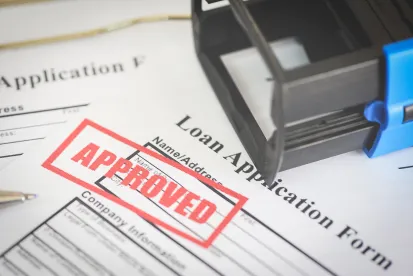Although always a significant focus of consumer lending, recent regulatory actions and pronouncements illustrate the sharp focus fair lending issues are receiving by both federal financial regulators and research bureaus. When considered collectively, these actions serve as an important reminder for all providers of consumer credit (including insured depository institutions, non-bank consumer lenders, and consumer finance "platforms" that partner with operating consumer lenders) that underwriting and credit modeling, as well as collection practices, must reflect compliance with all applicable laws.
FDIC Action Against Platform Bank
The FDIC recently announced a Consent Order with a New Jersey state-chartered bank that is actively involved in partnering with "fintechs" to provide branded consumer financial products and services to residents throughout the United States (in this way, the fintech partner offers an internet-based "platform" that provides the partner bank's products and services to consumers who live throughout the United States; for example, XYZ Bank could offer products that are branded as Wavy Finance, with the Wavy platform operated by a third-party servicer/loan broker that markets and services such bank's consumer lending products offered on that platform).
Although fintech platforms are typically the subject of regulatory scrutiny based upon the interest rates (and associated APRs) such platforms "export" to consumers throughout the United States, this was not the case in this action (notably, this bank is subject to New Jersey's usury laws which prohibit any lender from assessing an interest rate in connection with the offering of a consumer financial product in excess of 30 percent). Rather, the Federal Deposit Insurance Corporation (FDIC) ordered the bank to take a variety of actions that indicate a strong interest in the bank's fair lending policies and procedures, including the following:
1. increase its supervision and direction of management of the bank's system of internal controls, information systems, credit underwriting practices, and internal audit systems;
2. eliminate or correct and prevent the unsafe or unsound banking practices identified in the FDIC's 2021 Report of Examination;
3. identify each credit product that is offered by the bank, including those offered through fintech partners, and submit a list of such products to the FDIC with a description of the product and the third party offering it;
4. obtain the Regional Director of the FDIC's permission before (i) executing a binding commitment or agreement with a new third party to offer the bank's products or services; (ii) allowing a new third party to offer a new credit product through or in conjunction with the bank; and (iii) offering a new consumer financial product directly or indirectly. Requests for permission must be fulsome and include a detailed description of the procedures, processes, and actions the bank will take to ensure compliance with fair lending laws and regulations. Bank management must also submit proof that the bank's board has authorized the submission to the Regional FDIC Director;
5. conduct a risk assessment of all current products offered by the bank and any related third-party providers to identify fair lending risks, including risks associated with an application for credit; and
6. submit a proposed engagement letter with an acceptable, independent third party to assess whether, during January 1, 2021, and December 31, 2022, each third party offering the banks products and services complied with applicable fair lending laws and regulations.
Considered in total, these actions are exceptionally prescriptive with respect to the fair lending focus and the requirement to obtain FDIC Regional Director permission prior to offering new products or entering into new fintech partnership agreements (the bank in issue is a significant participant in the offering of its products and services via third party fintech platforms). Moreover, the fact that these requirements were not provided through the more "informal" examination processes available to the FDIC (such as through a "matter requiring attention" or "matter requiring immediate attention," neither of which would have been public) means that the FDIC wanted to ensure that all actors involved in the delivery of consumer financial products and services through the use of national platforms are aware of the restrictions that were being imposed upon the bank.
Joint Federal Agency Release on Artificial Intelligence
On April 25, the Consumer Financial Protection Bureau, the Federal Trade Commission, the US Department of Justice, and the Equal Employment Opportunity Commission published a joint release (Joint Statement) describing the agencies' pledge "to uphold America's commitment to the core principles of fairness, equality, and justice as emerging automated systems." Noting that each agency has previously expressed independent interest in this area, the Joint Statement provides that the agencies will continue to "monitor the development and use of automated systems and promote responsible innovation. . . [and will use their] collective authorities to protect individuals' rights regardless of whether legal violations occur through traditional means or advanced technologies." Based on this release, it is clear that coordinated actions by these agencies are ongoing and will likely be publicly released shortly.
Congressional Research Service Report on Consumer Lending
On May 10, the Congressional Research Service (CRS) issued a report (CRS Report) on the use of algorithms to enhance consumer loan underwriting. Noting that technological developments allow for greater speed, accuracy, and confidence in loan decisioning, the report notes that machine learning models, while improving efficiency and reducing costs, also introduce risks, including the lack of "explainability" which is defined in the report as the "inability to explain why programs make particular decisions." In addition, the CRS Report noted that machine learning models raise concerns that they "may not perform as intended, possibly resulting in higher loan losses in new market environments or discrimination against protected groups." This report will likely to be the first of additional reports published by nonpartisan governmental groups.
Marketing, underwriting, and collecting consumer debt, whether offered by an insured depository institution or a non-bank provider, requires significant attention to all components of such offerings. While strides in operational efficiencies should correlate to lower costs for the providers of such products and services which should, in turn, lead to decreased costs for consumers who utilize various credit products (from unsecured consumer loans to residential mortgages to credit cards), providers and servicers must ensure that the delivery of such products and services align with all legal requirements, including fair lending laws and regulations.




 />i
/>i
